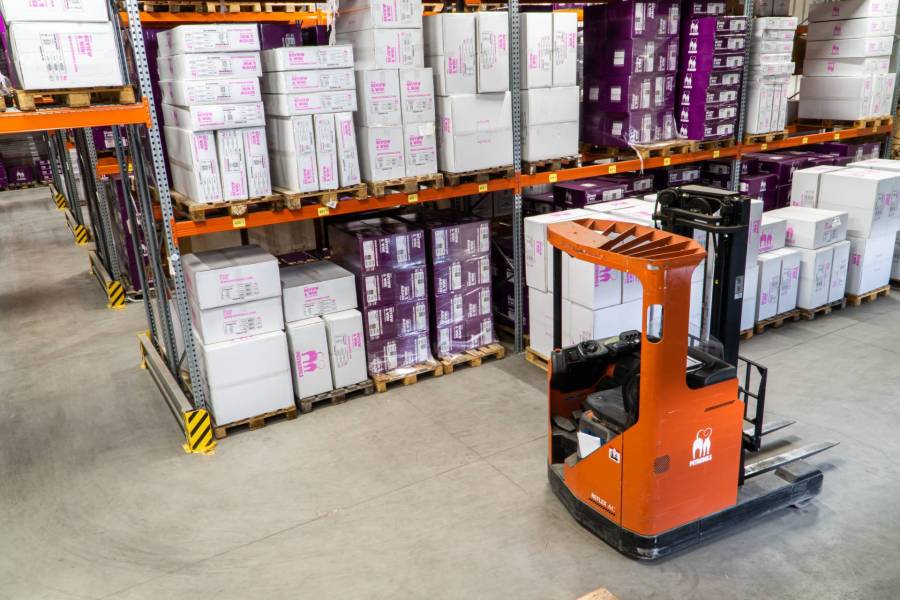Two of China’s largest e-commerce platforms, Temu and Shein, compete aggressively with one another, and this rivalry is typical of the industry as a whole. Both companies are now taking their aggressive strategies in China global. This article will examine the current dispute between Temu and Shein, as well as the allegations and rebuttals made by both parties, and how it has affected the international e-commerce market.
Temu, a subsidiary of the Chinese e-commerce giant Pinduoduo, has filed a lawsuit against the fast fashion industry giant Shein in the United States, claiming that Shein engages in anti-competitive practices. According to Temu’s claims, Shein has coerced clothing manufacturers into signing non-compete clauses. This accusation is similar to the one that claims Alibaba’s “choosing one from two” policy coerced sellers into abandoning Pinduoduo in favor of Alibaba’s own platforms. The Chinese government’s investigation into Alibaba’s monopolistic practices in 2020 will show the dire consequences of anti-competitive behavior.
Shein is so strict with its clothing suppliers because it has such a hard time sourcing cotton in China. According to a post on Xiaohongshu, China’s version of Reddit, written by a Temu vendor, clothing manufacturers face difficulties when attempting to source cotton from areas outside of Xinjiang, China’s primary cotton-producing region. Concerns over possible forced labor have caused the U.S. fashion industry to pull back from Xinjiang. All 8,338 of Shein’s manufacturers are required to sign exclusive-dealing agreements, which prevents them from selling on Temu or supplying products to Temu sellers.
Shein’s exclusive-dealing agreements with roughly 8,338 manufacturers account for roughly 70% to 80% of the estimated retailers capable of supplying ultra-fast fashion, according to Temu’s lawsuit. This demonstrates the dire circumstances in which Temu finds itself and the impact that Shein’s anti-competitive practices have had on the industry as a whole. Despite the rising popularity of ultra-fast fashion, which satisfies customers’ demands for quickly delivered, trendy, and reasonably priced apparel, Temu’s ability to provide a wide selection of such products may be harmed due to Shein’s control over many manufacturers.
Both the Shein and the Temu are engaged in a war that has spread beyond China’s borders. Shein is a Singapore-based company’s wholly-owned Chinese manufacturing subsidiary. Temu and Pinduoduo, on the other hand, have started their global expansion by opening an office in Dublin, Ireland. Legal issues between Shein and Temu are complicated by Chinese market regulations and those of other countries.
To combat the dominance of a few companies in the consumer internet space and the widespread use of monopolistic business models in the technology sector, China has proposed anti-monopoly legislation. There has been no resolution to the dispute between Shein and Temu, and it is unclear whether the Chinese government will step in to mediate the situation. This raises questions about the efficacy and reach of China’s anti-monopoly laws on a global scale.
The legal dispute between Shein and Temu concerns a wide range of topics. Shein claims Temu infringed on its trademark and copyright rights by trying to capitalize on the popularity of the Shein brand in the American market through a complex impersonation scheme. These accusations illustrate how much is at stake for both parties.
The future of online shopping worldwide is at stake in the ongoing dispute between Shein and Temu. Regulations should be strict to prevent anti-competitive behavior, and fair competition is emphasized. As more people make online marketplaces their go-to for purchasing goods, protecting consumers and ensuring fair competition is more crucial than ever.
The competition between Temu and Shein is indicative of the broader e-commerce industry worldwide. The accusations and counter-accusations of anti-competitive behavior show how heated the competition is and how much is at stake. It is crucial that authorities address monopolistic practices and ensure equal access to the market as the e-commerce sector grows. Businesses and customers alike require a level playing field in the digital economy today.
First reported on TechCrunch
Frequently Asked Questions
1. What are Temu and Shein, and what makes their rivalry significant?
Temu and Shein are two of China’s largest e-commerce platforms engaged in aggressive competition. Their rivalry is typical of the competitive nature of the e-commerce industry. Both companies are now taking their aggressive strategies from China to a global scale, impacting the international e-commerce market.
2. What legal action has Temu taken against Shein, and what are the accusations?
Temu, a subsidiary of Pinduoduo, has filed a lawsuit against Shein in the United States, alleging anti-competitive practices. The lawsuit claims that Shein coerced clothing manufacturers into signing non-compete clauses, similar to the alleged “choosing one from two” policy by Alibaba. The Chinese government’s investigation into Alibaba’s monopolistic practices in 2020 has shown the potential consequences of such behavior.
3. What is the significance of Shein’s strict control over clothing suppliers?
Shein’s tight grip on clothing suppliers is linked to the difficulty of sourcing cotton outside of Xinjiang, China’s primary cotton-producing region. Due to concerns over forced labor in Xinjiang, the U.S. fashion industry has distanced itself from using cotton sourced from the region. All 8,338 of Shein’s manufacturers are required to sign exclusive-dealing agreements, preventing them from selling on Temu or supplying products to Temu sellers.
4. How does Shein’s exclusive-dealing agreement impact the industry and Temu?
According to Temu’s lawsuit, roughly 70% to 80% of the estimated retailers capable of supplying ultra-fast fashion are among the manufacturers bound by Shein’s exclusive-dealing agreements. This severely affects Temu’s ability to provide a wide selection of ultra-fast fashion products, despite the growing demand for such items.
5. How has the rivalry between Shein and Temu extended beyond China?
Both Shein and Temu have expanded their operations beyond China’s borders. While Shein’s parent company is in Singapore, most of its products are manufactured in China. Temu and Pinduoduo have set up an office in Dublin, Ireland, as part of their global expansion plans. This adds complexity to the legal dispute, involving regulations from multiple countries.
6. What is China’s stance on anti-monopoly laws, and how might it affect this dispute?
In response to monopolistic practices in the tech industry, China has proposed anti-monopoly legislation. The outcome of the dispute between Shein and Temu may be impacted by these laws, but it remains uncertain how Chinese regulators will intervene in the case since neither company directly sells its products within China.
7. What are the key issues in the legal dispute between Shein and Temu?
The legal dispute involves various aspects, including Shein’s accusation that Temu violated its trademark and copyright rights through an impersonation scheme to profit from the Shein brand’s popularity in the American market. This highlights the complexity and high stakes involved in the conflict.
8. How will the ongoing dispute between Shein and Temu affect the global e-commerce market?
The ongoing rivalry between Shein and Temu has significant implications for the international e-commerce landscape. The need for strict regulations to prevent anti-competitive behavior is emphasized, and the importance of fair competition is highlighted. As more consumers turn to online marketplaces, ensuring consumer protection and fair competition becomes crucial.
9. What does the dispute between Shein and Temu reveal about the broader e-commerce industry?
The dispute illustrates the highly competitive nature of the global e-commerce industry. The accusations and counter-accusations of anti-competitive behavior underscore the intense competition and the significant impact on the market. Regulators must address monopolistic practices and ensure equal opportunities for businesses in this growing sector.
10. How does this dispute impact businesses and consumers in the digital economy?
In the digital economy, businesses and consumers alike require a level playing field to thrive. The ongoing conflict between Shein and Temu highlights the importance of fair competition and the need to protect consumers’ interests. Stricter regulations are necessary to curb anti-competitive practices and foster a fair and open marketplace for all stakeholders.
Featured Image Credit: Unsplash


















